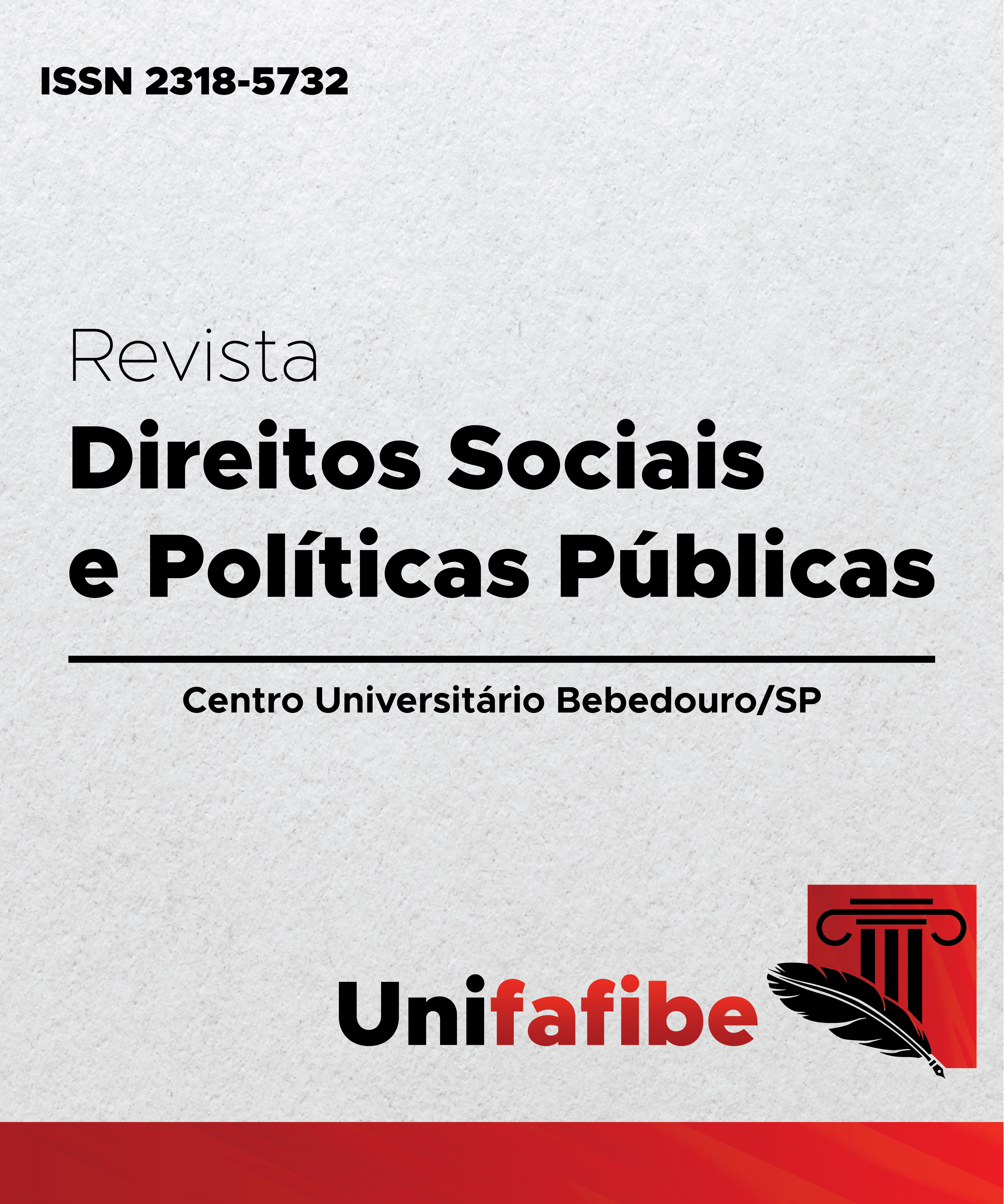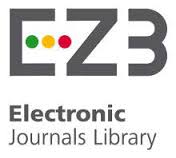SECULARIZAÇÃO
INTOLERÂNCIAS E NEUTRALIDADES NAS VISÕES DE JOSÉ CASANOVA E CHARLES TAYLOR EM RELAÇÃO ÀS MULHERES AFEGÃS DIANTE DO GRUPO TALIBÃ E APLICAÇÃO DOS ODS COMO MODELO DE RECONSTRUÇÃO DA SECULARIZAÇÃO DIANTE DE UM ESTADO DEMOCRÁTICO PLURALISTA
DOI:
https://doi.org/10.25245/rdspp.v10i2.1314Resumo
O presente artigo tem como objetivo analisar o fenômeno da secularização, suas intolerâncias e neutralidades nas visões de José Casanova e Charles Taylor em relação às mulheres afegãs diante do grupo Talibã. O tema proposto se justifica tendo em vista a situação de vulnerabilidade em que as mulheres afegãs se encontram, de modo especial, após a invasão do Talibã a Cabul, no Afeganistão, bem como a relevância das religiões na vida pública, e a necessidade de um significado político da secularização em seus fundamentos epistemológicos; realizando-se a desprivatização da religião, por meio do diálogo e da participação igualitária de todos os grupos e pessoas, de modo especial as mulheres afegãs, na construção cooperativa das estruturas sociais das democracias contemporâneas; valendo-se dos axiomas igualdade, liberdade e fraternidade. Com relação aos resultados da pesquisa, percebe-se que sob o enfoque de uma recuperação sustentável baseada em igualdade de gênero, se propõe reconstruir um novo modelo de desenvolvimento, uma vez que a Agenda 2030 é uma agenda civilizadora, que coloca a dignidade e a igualdade das pessoas no centro e clama por uma mudança em nosso estilo de desenvolvimento em conformidade com o desenvolvimento sustentável. Importante salientar que os Objetivos de Desenvolvimento Sustentável (ODS) são a base da Agenda 2030 e mostram uma perspectiva abrangente, indivisível e uma colaboração internacional renovada. Nesta pesquisa, em meio aos 17 ODS, abordar-se-á os ODS 5 (igualdade de gênero), 10 (redução das desigualdades) e 16 (paz, justiça e instituições eficazes), como bases para a reconstrução da secularização diante de um Estado democrático pluralista. Quanto à metodologia, utilizou-se o método dedutivo, por meio de uma pesquisa bibliográfica e documental como fonte de formação dos postulados defendidos.
Referências
ARAUJO, Paulo Roberto M. de. Charles Taylor: para uma ética do reconhecimento. São Paulo: Loyola, 2004.
ARENDT, Hannah. Entre o passado e o futuro. São Paulo: Perspectiva, 2009.
ARMSTRONG, Karen. Uma história de Deus: quatro milênios de busca do judaísmo, cristianismo e islamismo. São Paulo: Companhia das Letras, 1994.
BERGER, Peter L. Os múltiplos altares da modernidade rumo a um paradigma da religião numa época pluralista Petrópolis-RJ: Vozes, 2017.
CASANOVA, José. O problema da religião e as ansiedades da democracia secular europeia. Revista de Estudos da religião. Dez. 2010, pp. 1-16. ISSN 1677-1222. Disponível em https://www.pucsp.br/rever/rv4_2010/t_casanova.pdf. Acesso em: 22 set. 2021.
CASANOVA, José. As religiões estão se tornando cada vez mais globais. Disponível em http://www.ihu.unisinos.br/entrevistas/508258-as-religioes-estao-se-tornando-cada-vez-mais-globais-entrevista-especial-com-jose-casanova. Acesso em 22 set. 2021.
CATARINAS JORNALISMO COM PERSPECTIVA DE GÊNERO. Talibã e Afeganistão: o que representa a nova ascensão a mulheres e muçulmanos
Disponível em https://catarinas.info/taliba-e-afeganistao-o-que-representa-a-nova-ascensao-a-mulheres-e-muculmanos/. Acesso em 22 set. 2021.
CNN Brasil. Visão do Talibã sobre as mulheres não reflete o Alcorão. Disponível em https://www.cnnbrasil.com.br/internacional/visao-do-taliba-sobre-as-mulheres-nao-reflete-o-alcorao-dizem-especialistas/. Acesso em 22 set. 2021.
COMISSIÓN ECONÓMICA PARA AMÉRICA LATINA Y EL CARIBE (CEPAL). ODS. Disponível em https://www.cepal.org/es/temas/agenda-2030-desarrollo-sostenible/acerca-la-agenda-2030-desarrollo-sostenible. Acesso em 22 set. 2021.
DECOTÉ JÚNIOR, Joel. A redefinição política do significado da secularização segundo Charles Taylor. Revista de Filosofia Dissertatio. Vol. 48, pp. 201-241, ISSN 1983-8891. Disponível em https://periodicos.ufpel.edu.br/ojs2/index.php/dissertatio/article/view/13220. Acesso em: 22 set. 2021, p. 203.
DECLARAÇÃO UNIVERSAL DOS DIREITOS HUMANOS. Artigo 18. https://www.googleadservices.com/pagead/aclk?sa=L&ai=DChcSEwjD2t7HmrHzAhWWuMgKHa96D30YABAAGgJxdQ&ae=2&ohost=www.google.com&cid=CAESQeD27P19eC4nwhXIqFqKSKHPjeDMjoTbaus0PYiklBEkUzOQwlKwQhx68NEqzqL1lMGO9yIZW5VswpWkaUCpT-rZ&sig=AOD64_1HomNRo2QGGQaV12dtiIem97tgYQ&q&adurl&ved=2ahUKEwiN0MvHmrHzAhWvpJUCHW-4DD4Q0Qx6BAgCEAE&dct=1. Acesso em: 22 set. 2021.
FAMBRAS. Federação das associações muçulmanas do Brasil. Disponível em https://www.fambras.org.br. Acesso em 22 set. 2021.
GIDDENS, Anthony. As consequências da modernidade. São Paulo: Unesp, 1991.
LACERDA, Fábio. Tradução de como definir secularismo Carles Taylor. In: Alfred Stepan, Charles Taylor (eds). Boundaries of toleration. Columbia University Press, 2014, pp. 59-78. Leviathan, Cadernos de Pesquisa Política, n. 14, pp.128-146, 2017. Disponível em https://www.google.com/search?client=safari&rls=en&q=Tradu%C3%A7%C3%A3o+de+Como+definir+secularismo1+Charles+Taylor&ie=UTF-8&oe=UTF-8. Acesso em 22 set. 2021, pp. 133-134.
MARRAMAO, Giacomo. Poder e secularização: as categorias do tempo. São Paulo: Unesp, 1995.
MENDIETA, Eduardo; VANANTWERPEN, J. (Orgs.). El poder de la religión en la esfera pública: Jürgen Habermas, Charles Taylor, Judith Butler, Cornel West. Madri: Trotta, 2011.
ORGANIZAÇÃO DAS NAÇÕES UNIDAS (ONU). Sobre o nosso trabalho para alcançar os Objetivos de Desenvolvimento Sustentável no Brasil. Disponível em https://brasil.un.org/pt-br/sdgs. Acesso em: 22 set. 2021.
PLATAFORMA AGENDA 2030. Acelerando as transformações para a Agenda 2030 no Brasil. Disponível em http://www.agenda2030.com.br. Acesso em 22 set. 2021.
SARLET, Ingo Wolfgang. Dignidade da pessoa humana e direitos fundamentais na Constituição Federal de 1988. 5. ed. Porto Alegre: Livraria do Advogado, 2012.
SINNER, Rudolf Von. As religiões na sociedade e na academia em debate com José Casanova, na Unisinos. Disponível em http://www.ihu.unisinos.br/noticias/507411-jose-casanova-um-perfil. Acesso em 22 set. 2021.
SOUSA, Bertone de Oliveira. Secularização: uma discussão acerca de suas características e manifestações no mundo contemporâneo. Revista Espaço Acadêmico, n. 32, maio de 2012, ano XI, pp. 140-150. ISSN 1519-6186. Disponível em https://periodicos.uem.br/ojs/index.php/EspacoAcademico/article/view/14957. Acesso em 22 set. 2021.
STEPAN, Alfred. The world’s religious systems and democracy: crafting the twin tolerations. In Arguing comparative politics. Oxford and New York: Oxford University Press, pp. 213-255, 2001, p. 213.
TAYLOR, Charles. Por qué necesitamos una redefinición radical del secularismo. In: MENDIETA, E.; VANANTWERPEN, J. (Orgs.). El poder de la religión en la esfera pública: Jürgen Habermas, Charles Taylor, Judith Butler, Cornel West. Madri: Trotta, 2011.
TAYLOR, Charles. A Catholic Modernity? In: A Catholic Modernity? Charles Taylor’s Marianist Award Lecture, with responses by William M. Shea, ed. James L. Herft. New York, Oxford: Oxford University Press, 1999.
TAYLOR, Charles. O espírito democrático em risco. In: IHU Online: Revista do Instituto Humanistas Unisinos, São Leopoldo. Ano XIII, n.426, pp.42-46, 2013.
TAYLOR, Charles. Encanto y desencantamiento: secularidad y laicidad en Occidente. Maliaño (Cantabria): Sal Terrae, 2015.
RAWA. Associação Revolucionária das Mulheres do Afeganistão. Disponível em http://www.rawa.org/portuguese.htm. Acesso em 22 set. 2021.




















